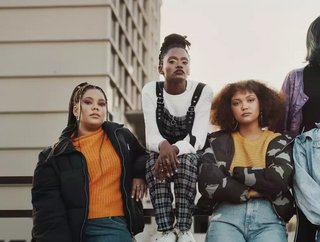Taking a more sustainable approach to fast fashion

Bryan Turner, Partner at Spear Capital, discusses how the ‘TK Maxx of Africa’ gives a new lease of life to the European fast fashion industry
It’s estimated that the global fashion industry is currently worth around £2tln. Fast fashion – broadly defined as inexpensive clothing produced by mass retailers that replicate catwalk and high-fashion designs – makes up an increasingly large slice of that pie. With economies around the globe recovering from the effects of the pandemic (albeit unevenly) fast fashion was expected to see growth in excess of 20% this year.
It’s also a global phenomenon, with Africa being no exception. In recent years, major fast-fashion retailers such as H&M, Zara and Mango have opened up outlets on the continent. By and large, that presence has been dominated by physical outlets. That’s not all that surprising. Prior to COVID-19, ecommerce accounted for just 1.4% of South African retail in 2018. For the continent’s most mature economy, that’s an especially low figure.
But over the past couple of years, things have changed dramatically. Ecommerce is expected to account for 4% of retail sales in 2021 and is as high as 15% in some categories. That means there’s a significant opportunity for retailers, especially those that don’t have physical stores.
The seasonal significance
That opportunity becomes even more apparent and enticing when you remember the seasonal differences between Europe and Southern African countries. This means that European retailers can get maximum use out of that year’s winter or summer collections beyond their markets of origin.
Recognising this opportunity, MyRunway takes stock from some of the biggest retailers across Europe and the US and sells it into the South African market. While this was always part of the plan, the impact of COVID-19 has undoubtedly accelerated the process. Backing from SPEAR Capital, which recently increased its investment in MyRunway, has helped it accelerate even more rapidly.
For the European brands themselves, taking an online-first approach through a website like MyRunway also means that they can explore new markets without making a major investment in infrastructure or a physical retail presence.
A more sustainable approach
Of course, when talking about fast fashion, it’s impossible not to mention environmental impact and sustainability. In recent years, some fast fashion players have come under fire for what are perceived to be unsustainable and environmentally unfriendly practices.
According to one study: “The fashion industry is currently responsible for more annual carbon emissions than all international flights and maritime shipping combined.” It’s also true that millions of tonnes of clothing end up in landfills every year. Around the world, brands have recognised this as a problem and are engaging in all kinds of initiatives to improve their sustainability.
Taking an online approach of the kind brands use with MyRunway is a quick win on that front. By effectively giving brands extended seasons, they can sell more of their stock. Additionally, this approach allows them to build up stock and ship according to demand, rather than shipping over large amounts of goods that may not sell.
Necessarily flexible
The past two years have also taught us the importance of flexibility. When global trade all but shut down in 2020, many of the world’s biggest brands faced what had the makings of a major crisis. A traditional, physical location-led approach can make it incredibly difficult to survive such a crisis, especially in the most affected geographies.
An online approach, using a website like MyRunway, is much less risky, especially for brands exploring new markets. After the past two years, that’s only going to become more of an imperative.
Always changing
Far more than most other industries, fashion is unafraid to embrace change and innovation. There is no reason it shouldn’t take that attitude when it comes to exploring new markets in ways that benefit both brands and the environment.






